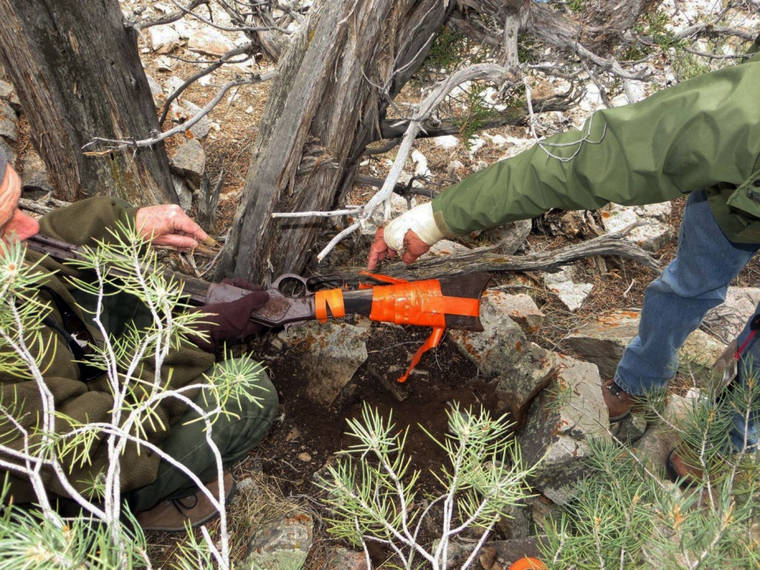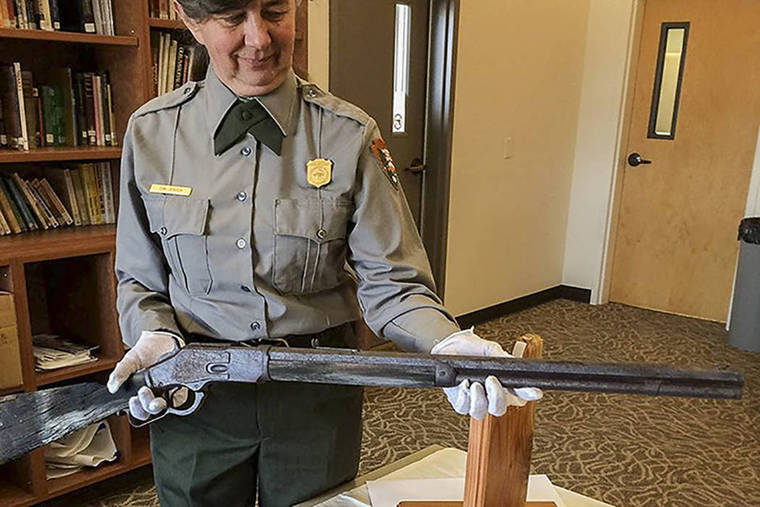BAKER, Nev. — A 137-year-old rifle found five years ago leaning against a juniper tree in Great Basin National Park in Nevada is now part of an exhibit dedicated to the “Forgotten Winchester” at the park visitor center near the Utah border.
The weathered Winchester Model 1873 is in a case designed to capture the way it looked when park archaeologist Eva Jensen stumbled across it on a rocky outcrop above Strawberry Creek during an archaeological survey.
Based on its condition, experts believe the weapon might have been abandoned in the forest more than a century ago.
But nearly five years after its discovery, park officials still don’t know who it belonged to or why it was left against the tree. No sales or ownership records have been found
The serial number was visible, allowing experts at the Buffalo Bill Center of the West in Cody, Wyoming, to determine it was made in 1882.
The exhibit also highlights the role the Model 1873 — one of the most popular guns on the Western frontier — played in the history of the West.
“The exhibit is a showcase for visitors to discover the rifle’s mysterious story and become inspired to imagine, investigate and care about a piece of their American history,” said Nichole Andler, the park’s chief of interpretation.
Herbert Houze, former curator of a firearms museum at the Buffalo Bill center, has said Model 1873 rifles were so valuable that whoever owned the one on display might have rested it against the tree and been unable to find it later.
“You just don’t leave a gun like that there,” he said.
The rifles sold for $35 to $50 in the 1880s and can now fetch up to $15,000 depending on their condition.
The rifle on display has been exhibited at gun shows and at the Buffalo Bill center for a summer. There, officials did an X-ray, found a bullet in the stock and removed it.
The bullet is included in the new exhibit case.
“It has been a fun and inspiring project to work on with our park staff and our partners to complete this exhibit and give the Forgotten Winchester a permanent home,” Andler said.
The exhibit was designed and funded by the National Park Service, Great Basin National Park Foundation and Fund for People in Parks, a San Francisco Bay Area-based nonprofit that sponsors improvements at some of the West’s smaller, less famous parks.



